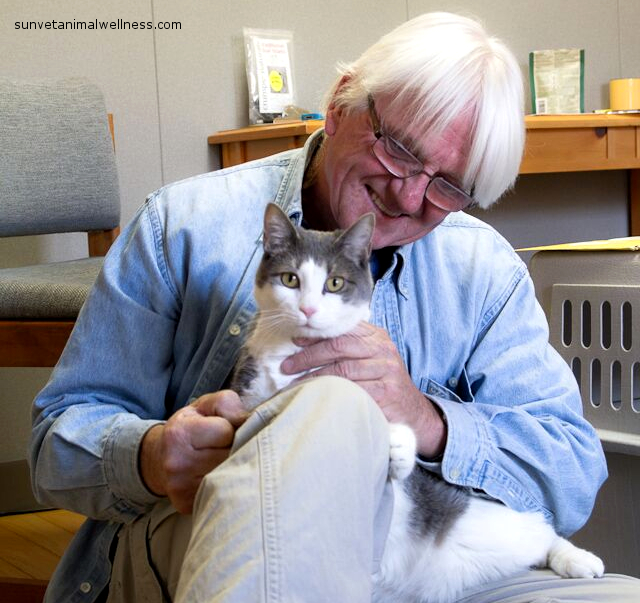Happy National Answer Your Cat’s Questions Day! Now… what exactly does this entail? Let’s explore!
Why do cats do what they do? “Ha!” you may say, “Because they can.” Those fuzzy little imps that run our lives are truly wild animals; they are closer to their ancestors than our canine friends. Because they are, for the most part, more finely tuned, they can be more likely to act out in response to stressful environmental stimuli. They certainly reflect the energy and activity around them in very distinct and cat-specific ways, as anyone who has shared their life with a cat can tell you!
Although there is much debate over the origin of the term ‘pissed-off,’ I have always thought it may have a feline derivation. The reason certain kitties decide to spray, pee or act out in some way can appear to be out of anger but is often caused by anxiety, frustration, or stress. Holy Cow, if one could unravel the real reason for the beast’s action, perhaps there could be an end to all of this destruction and hootenanny!
So why is Frank continuing to spray the walls in the hallway? Adonis is insufferable with his jumping on the kitchen counter. How come Bella peed in my bed last Monday and again this week? Molly just sits and stares at me for no reason at all. We have three official scratching posts, and yet my couch is trashed from Orange Man’s scratching!
Enough people wonder about these mysteries that there is an official Answer Your Cat’s Questions Day every 22nd of January. Considering your cat’s questions is a great place to start, but how do we even know what those questions are?
Perhaps taking the time to sit, get quiet and ask them what it is they want to say is what it’s really all about. Below are some pointers that can allow you to be open to some real questions.
Listening to Your Cat’s Questions in Twelve Steps
- You must desire to get to the bottom of why a particular scenario continues to repeatedly play out in your house, yard, etc.
- You must be open to the possibility that your actions, emotional upset or demeanor may be the source of the frustration.
- Find a quiet place where you can sit comfortably, with no distractions.
- Open yourself up to receiving and transmitting messages.
- Open your heart and send your love towards your furry friend.
- Say your animal’s name several times in your mind until you either receive a mental picture of her or feel you have her attention.
- Welcome her, tell her that you love her and hold her in your heart.
- Ask if she has anything she wants to ask, say or show you. Be quiet, listen and feel for several minutes.
- Let her know what is on your mind about the frustrating behavior. Don’t be afraid to let her know how sad or frustrated you are. Animals do not beat around the bush like we humans tend to do. They get right to the point of the conversation. Be quiet and open to any form of communication you may receive: feelings, visuals, words, downloads of ideas or just a sense of knowing.
- Do not be afraid to ask questions. Try to send images and mental pictures to augment your words. Then, listen again.
- When you get ready to close your conversation, thank her for joining you and tell her how you cherish her.
- Trust that it is so.
Communicating with animals is our birthright. We are all one and there is a universal language. The more you flex your communication ‘muscle’ the more toned it will be: practice makes perfect!
Want to Learn More About Hearing Your Cat’s Questions?
Book an appointment! In my practice, in addition to going through my veterinary protocols to analyze your cat’s or dog’s health, as an “animal interpreter,” I can translate for you. I connect with your animal companion so I can let you know what they’re going through and needing from you. Book now in my Asheville NC clinic. Do you live elsewhere? Schedule a phone or Skype session.
For those of you who are interested in learning more about how to communicate with the animals in your life yourself, I have included three Asheville, NC area animal communicators that teach several local classes a year. In addition, Rain Hummingbird teaches ongoing online classes.
Open your hearts and ears to what your lovely kitties have to tell you.
Shine on!


